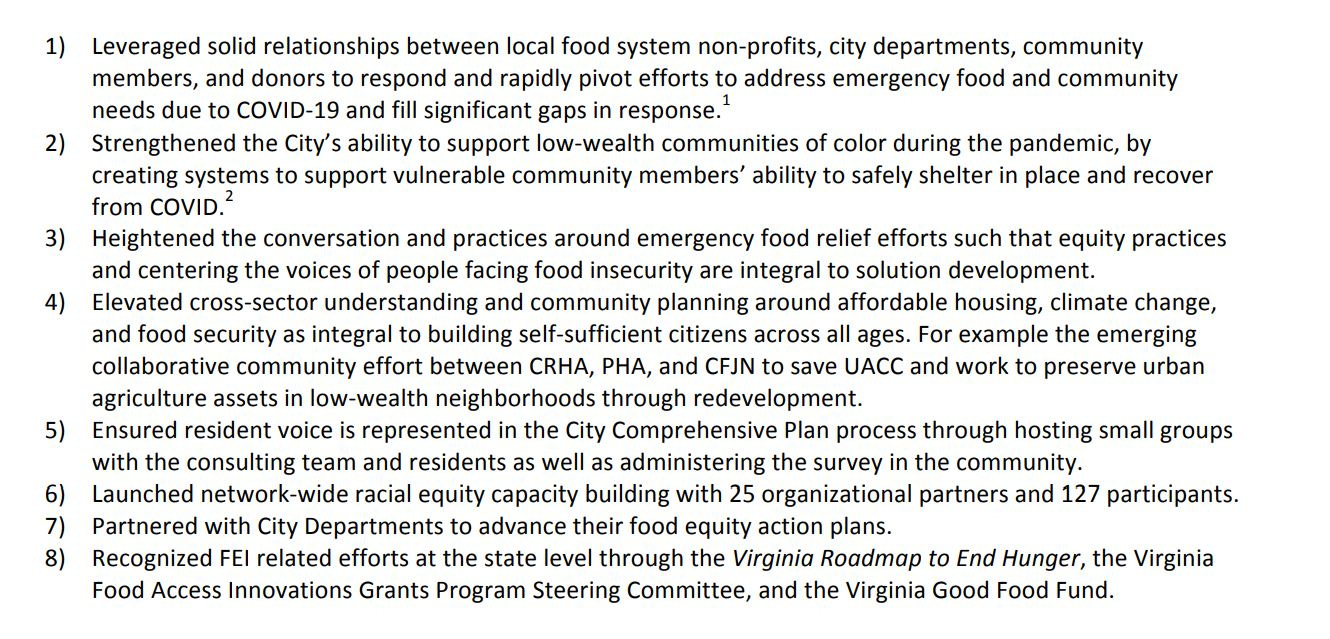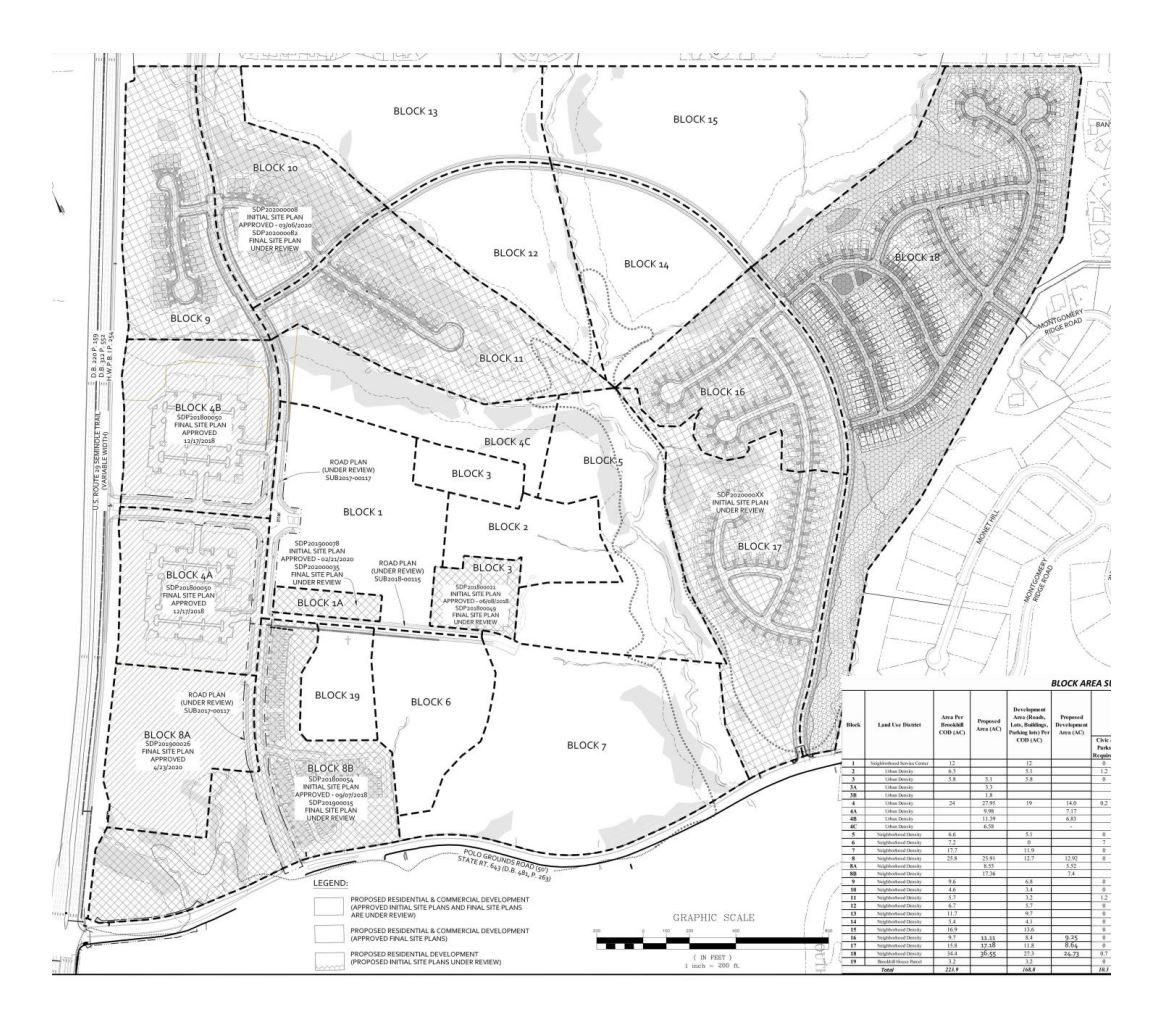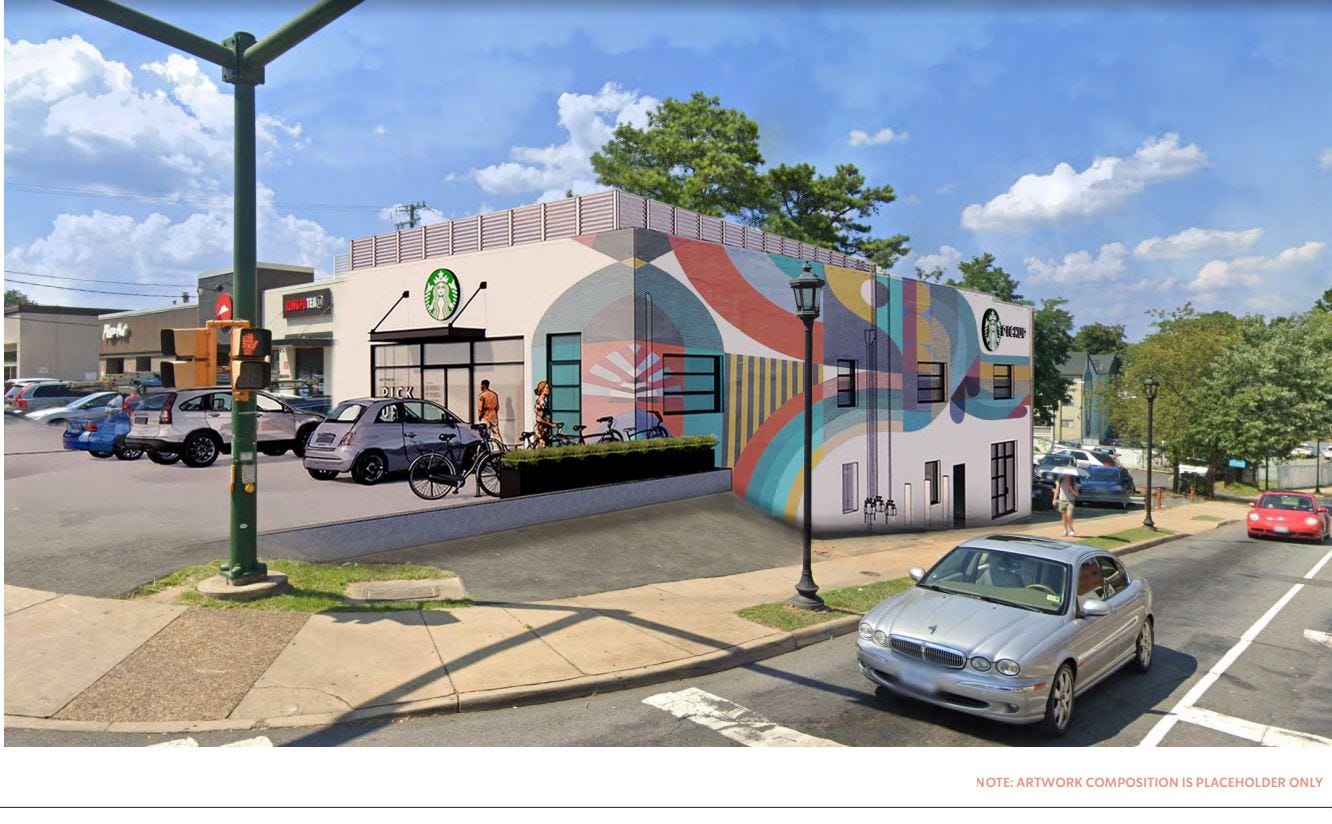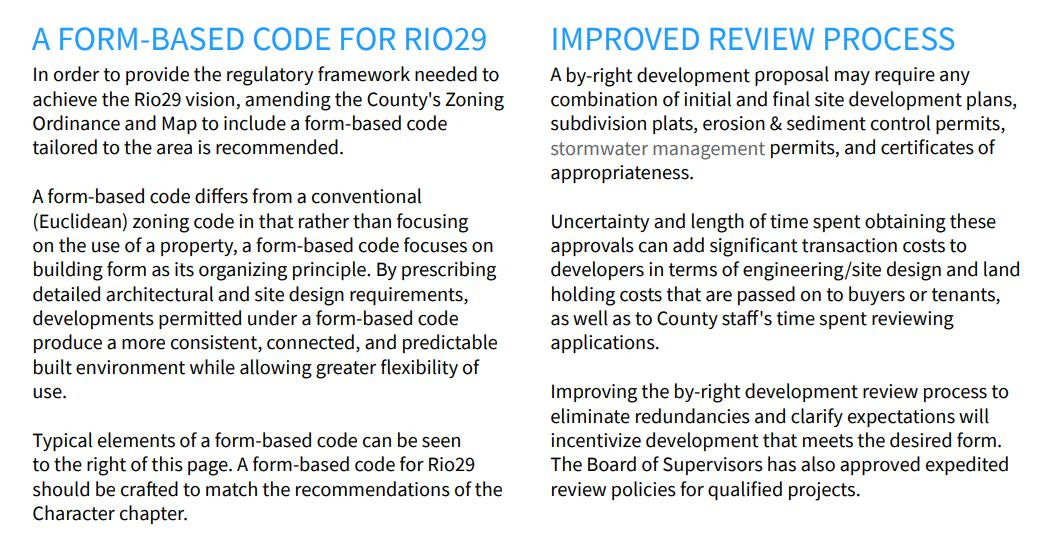Halfway through the month, but this is the last full week in what has been a very busy month. Though this Thanksgiving will be like none other we’ve ever experienced, there will still be downtime next week as government meetings slow down around the holidays. I look forward to spending my downtime catching up and documenting a lot of what I missed, outside of the news cycle.
But this week is quite busy for local civic affairs, and there is a lot to tell you about. I’m going to begin putting the shorter meetings into bullet form to make this easier to read. This weekly update is often over 2,000 words long, and I am working on ways to make it more accessible. Feedback is welcome.
Thanks as always to the Piedmont Environmental Council for sponsorship of this newsletter, which aims to inform you about what’s happening so that you understand the context of how decisions are made.
Monday, November 16
Council experiments with new format; to be briefed on traffic calming possibilities
Charlottesville City Council meetings tend to run late until the evening. Sometimes that means they only get a written document and don’t hold a public discussion. Council will try out a new format by meeting in open session beginning at 4 p.m. to discuss these reports. This time they’ll get an update on the Food Equity Initiative, followed by a report on the city’s finances through October 31. (agenda for this portion)
“The Charlottesville Food Equity Initiative (FEI) brings together public, private, and non-profit partners working in unique and complementary ways to build a healthy and just community food system for all Charlottesville residents,” reads the report for the former. “The Initiative is cultivating community driven processes, resident leadership, and city partnerships to improve access to and quality of nutritious and affordable foods, addressing food equity barriers.”
City Council used $155,000 from its strategic initiatives to pay for the first year of the program, and spent another $155,000 in the current fiscal year budget for the second year. Staff is recommending a third year of funding in the next budget.

The financial report shows that the city missed its target for collection of various taxes through October, including meals tax, personal property tax, lodging tax, and utility tax. Many of these targets were revised downward when Council adopted an altered budget for Fiscal Year 2021 following the beginning of the pandemic. (report)
At the conclusion of the financial report, Council will go into a closed session. They’ll come back at 6:30 p.m. for a meeting with only three business items. These begin with action on allocation of $100,000 in CARES funding to pay former city employees.
“Due to a difficult and necessary reduction in force required by the COVID-19 pandemic, 228 staff were laid off for lack of work activities,” reads the staff report. “City Council and City leadership have expressed concerns for these employees in several council meetings.”
If approved, this would leave $55,000 remaining in the city’s CARES contingency fund. Employees in households with incomes less than 50 percent of the area median would be eligible for $750 in funding. Those in households with incomes less than 30 percent would be eligible for up to $1,000.
Next up, Council will be briefed on several road safety issues by traffic engineer Brennen Duncan. One is a request for traffic calming on Cherry Avenue, and another is permission to remove speed bumps on Willard Avenue.
But the main focus will likely be on the 5th Street Corridor. Nearly 1,400 people have signed a petition calling for ways to change the character of the four-lane divided highway to deter speeding. (report)
“There have been 5 fatal crashes along this stretch of roadway since November of 2016, three of these being since July of this year,” reads the report from Brennan Duncan. “Charlottesville Police Department provided traffic engineering with the crash reports for four of the five (the 5th report has not been finished yet) fatalities that have occurred over the past four years. All of the fatal crashes were the result of driver action and not necessarily roadway design. Four of the incidents resulted from a combination of reckless driving and excessive speed, while the 5th was related to impaired driving.”
Nevertheless, Duncan’s report provides potential options to address the issue. Immediate measures include reducing the speed limit to 40 miles per hour, installing intersection warning times, and altering traffic signals. One of these would add a flashing yellow light for all permissive left turns.
In the mid-term, there are several potential projects identified in a 2018 study of the Fifth Street corridor. Duncan’s department is recommending installing a roundabout at the Bailey Road intersection that leads up to Prospect Avenue.
“Installing this would break up the 1 mile corridor and make it harder to attain the high speeds witnessed in the recent fatalities,” Duncan wrote.
The city was awarded $6.1 million in Smart Scale funding from the Virginia Department of Transportation to address some of the ongoing concerns. However, those projects would not be built for several years, so Council would have to rely on city funds.
For long term solutions, Duncan said that most accidents are the result of traffic congestion. He made suggestions that would involve coordination with Albemarle County, perhaps through the Regional Transit Partnership.
“As a long term recommendation, traffic engineering is suggesting that park and ride lots/structures should be implemented along the city/county line to encourage bus use,” he wrote. “In order for this to be effective, our transit model for the city would need to change. Transit lines would need to focus on our main arterial roadways and get lead times between busses down in the 10-15 minute range.”
Following that discussion, Council will be briefed on the city’s logo and the process by which it might be changed. (report)
*
Albemarle has several meetings today.
- Albemarle County will hold the second of two information meetings for property owners within the scope of the proposed Rio Road form-based zoning code. This virtual meeting begins at noon. This is not the last time we’ll hear about this proposal this week. (meeting info)
- The Albemarle Architectural Review Board meets at 1 p.m. The only item listed on the agenda is a decision over what blocks in the Brookhill development should come before the panel for review. Brookhill was rezoned in November 2016 and will bring between 600 and 800 homes. This is a good chance to get an update on where the project stands. (meeting info)
- Places 29 Hydraulic Community Advisory Committee meets at 5:30 p.m. There will be a presentation entitled “Neighborhood Strength: Lessons from Bamboo Grove”, referring to a recent rezoning in Crozet. Then the group will get updates on the county’s housing policy, and an update on efforts to increase broadband access. (meeting info)
- The Village of Rivanna Community Advisory Committee meets virtually for the first time since the pandemic. They’ll get an update on the “development dashboard” updated by county planners. The Breezy Hill rezoning is not on the agenda, but could conceivably come up in conversation. (meeting info)

Tuesday, November 17
Starbucks on West Main? Albemarle PC to review form based code
The coffee chain Starbucks has filed design plans with the city of Charlottesville for a potential franchise at 1001 West Main Street. The site is currently occupied by Glaze Burger and Donut, which replaced a Sugar Shack Donuts franchise. The building itself has been historically protected from demolition since December 2013 when it was added to the West Main architectural design control district.
“A remnant of West Main’s 20th century automobile-centric history, in the last decade this structure has been modified and repurposed,” reads the staff report for a preliminary discussion at the Board of Architectural Review’s on Tuesday. “Applicant has requested a preliminary discussion to review with the BAR the components of the planned project, which include signage, an entrance canopy, bike racks, and a large mural.”
Other items on the BAR agenda are a review of a modification to the approved design at Dairy Central and an intermediate review of a four-story building planned at 612 West Main Street where a University Tire Franchise now stands. (agenda)

*
It has been almost two years since the Albemarle Board of Supervisors adopted a small area plan for about 400 acres in the vicinity of the intersection of Rio Road and U.S. 29. One of the recommendations was to rewrite the zoning for the area to encourage development of a more urban form to allow for the asphalt parking lots to be reclaimed over time through redevelopment. The goal of the form based zoning code would be to make it easier for developers to move forward with projects without having to get additional permission from elected officials.
The Planning Commission will hold a work session beginning at 6 p.m. on the work to date. They’ll review these goals. (agenda)
- Allow development that achieves the vision through a by-right process;
- Establish clear expectations for residents, property owners, developers, and the County for new development;
- Allow development to happen in the near term and to support the area’s transition over time to meet the vision; and
- Strike the appropriate balance between regulation to achieve the desired form and flexibility to accommodate market changes, creativity in design, and a mix of uses.
The language in the draft code is highly technical, and that’s the point. The goal is to begin a process where the area is transformed from a place built for the 20th century to one that will suit the needs of Albemarle in the decades to come. The future will be built parcel by parcel, and the more people who know the process, the more they may see the vision that planners see in the technical language.
Some may be interested in a long summary I wrote of April 2019 discussion about how other areas in Virginia have used a form-based code. (story)

Other meetings for Tuesday, November 15:
- The Albemarle Economic Development Authority meets at 4 p.m. Among the items on the agenda will be an update on tourism in the area from Courtney Cacatian, executive director of the Charlottesville-Albemarle Convention and Visitors Bureau. They’ll also vote on a proposal to add public comment at EDA meetings. (meeting info)
- Charlottesville will hold a site plan review at 10 a.m. for a new commercial building with warehouse space at 200 Carlton Road. The property is owned by Tiger Fuel and is the site of many current uses, including the restaurant Firefly. There are no further details in the meeting announcement. (meeting info)
- The Charlottesville Parking Advisory Panel meets at 3:30 p.m. for an update on the future parking structure as well as an introduction of the Parking Action Plan adopted by Council in January 2017 when they purchased the land for said structure at a cost of $2.85 million with no prior public input. (meeting info)
- The CVille Plans Together initiative will hold another webinar to introduce the draft affordable housing plan to anyone interested. (meeting info)
- The Rivanna Water and Sewer Authority meets following the Rivanna Solid Waste Authority, which begins at 2 p.m. (agendas for both)
Wednesday, November 18
Protecting and strengthening front-line workers
The Albemarle Board of Supervisors meets at 1 p.m. for a meeting that begins with a proclamation in support of front-line workers that reaffirms the county’s commitment to partnerships to help increase the well-being of those who continue to provide services during the pandemic. (resolution)
There is also a work session on the strategic plan and the capital improvement plan. Then the county’s zoning code enforcement officer will make a presentation on how that process works. In the evening there is an update from Dr. Denise Bonds of the Blue Ridge Health District.
One thing to note in the consent agenda is an update on the county’s stream health initiative. The county has reviewed and made changes to stream buffer rules in the urban area, and in 2021 staff will begin the community engagement process for the rural areas. (staff report)
Also, earlier in the week, the city got its look at current financials. The Board will get the same kind of report. (staff report)
Other meetings:
- A subcommittee of the Charlottesville Housing Advisory Committee will meet at noon. Will they discuss the draft Affordable Housing Plan? (meeting info)
- The Nelson County Planning Commission meets at 7 p.m. in the General District Courtroom in the county courthouse in Lovingston. On the agenda is a review of a major site plan amendment to allow Camp Blue Ridge to build a multi-purpose facility to replace their recently condemned cafeteria and a long-demolished gymnasium.
- The Ridge Street Priority Neighborhood Task Force will meet at 4 p.m. It will be interesting to hear their thoughts on Council’s discussion regarding the 5th Street roundabout (meeting info)
- An ad hoc Nominating Committee of the Human Rights Commission will meet at 5 p.m. (meeting info)
- The Cville Plans Together initiative holds a second webinar on the draft guidinging principles in the Comprehensive Plan update (meeting info)
- The James River Water Authority meets at 9 a.m. in person (meeting info)
Thursday, November 19
A return to town halls
A staple of representative government in Albemarle County is the town hall. Albemarle has six supervisors, each of whom represent a different magisterial district. That is different from Charlottesville, which elects five people at-large. But because of COVID, Albemarle’s in-person town halls have not been possible this year.
The virtual town hall for the White Hall District being put on by Supervisor Ann Mallek beginning at 7 p.m. is the first of this era. You can ask questions in advance by sending an email to [email protected] or asking in the session. (meeting info)
Other meetings:
- The Fifth and Avon Community Advisory Committee meets at 7 p.m. (meeting info)
- The Charlottesville Human Rights Commission meets at 6:30 p.m. (meeting info)
- The Fluvanna Board of Supervisors meets at 7 p.m. (meeting info)
Friday, November 20
The elected officials in both Albemarle and Charlottesville meet today, but for different reasons.
- Charlottesville City Council will hold a strategic planning work session beginning at 1 p.m. to inform the development of a budget for fiscal year 2022. (meeting info)
- The Board of Supervisors will meet with area legislators in a virtual meeting beginning at 7 p.m. (meeting info)
This post was contributed by Sean Tubbs. Sean is a journalist working to build a new information and news outlet centered around Charlottesville and Virginia. In 2020, he launched a daily newscast and newsletter and also created a semi-regular podcast on the pandemic.
Support for Sean’s “Week Ahead” update comes from The Piedmont Environmental Council.
